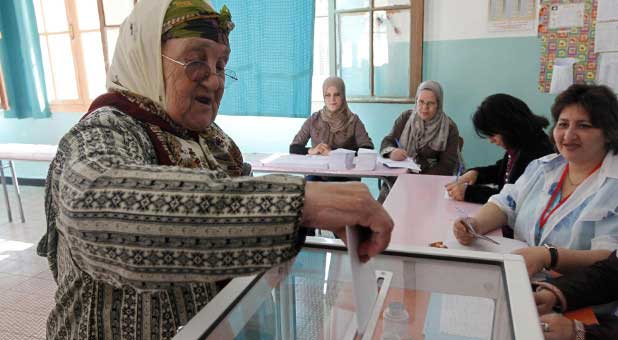David Rubin: The Arab Spring Dilemma
December 2010. The excitement in the air was palpable, and its shouts echoed around the world at the speed of light on every television, on every computer and in every home.
The Arab world, having long suffered under the yoke of ruthless dictators and not-so-benevolent kings, was rebelling, calling for freedom and democracy. Anyone watching these rose-colored news reports might have been forgiven for seeing images of Ben Franklin, Thomas Jefferson, Abraham Lincoln and Martin Luther King Jr. hovering over these massive demonstrations in Tahrir Square in Cairo, Egypt.
Hundreds of thousands, even millions, of protesters had gathered to demand the resignation of Egyptian President Hosni Mubarak after 30 years of strong-armed rule. In the Western world, it was known at first as the pro-democracy movement but soon came to be referred to as the Arab Spring, giving it a very optimistic feeling and a positive spin.
But was it really positive?
The turmoil in Egypt soon spread to other Islamic countries, such as Libya, where armed Muslim rebels emerged victorious, supported by American and European arms and funding. At that time, U.S. President Barack Obama was telling us how inspired he was by the rebel fighters in those two countries, despite the fact that both Al-Qaida-aligned terrorists and the radical Muslim Brotherhood were leading the opposition in those countries.
Even now, with a vicious civil war raging in Syria between Sunni and Alawite/Shiite Muslims, generally sensible politicians, such as Sen. John McCain, are telling the American people that it’s time to get on board, and quickly, in support of the (Sunni) Muslim rebels fighting against Bashar Assad’s (Alawite/Shiite) rule.
However, from my admittedly precarious, neighborly viewpoint here in Israel, living as we do just a car ride from the Egyptian and Syrian borders, I must strongly differ with what I see as a naïve, dangerous perception of the Middle East.
Has the Arab Spring truly been a movement that is expanding freedom in the Middle East, strengthening human rights and bringing genuine peace between Israel and its neighbors? Should the West really be investing its resources and moral stature in support of the Muslim Brotherhood, al-Qaida and similar Islamic fundamentalists?
In May 1991, the Muslim Brotherhood issued to its ideological allies an explanatory memorandum on the “General Strategic Goal for the Group in North America.” Explaining that the Brotherhood’s mission was to establish “an effective and … stable Islamic Movement” on the continent, this document outlined a “Civilization-Jihadist Process” for achieving that objective.
The document went on to declare that Muslims must understand that their work in North America and Europe is a kind of grand jihad (holy war against non-Muslims) in “eliminating and destroying the Western civilization from within” and sabotaging its miserable house by their hands so that “God’s religion” (Islam) is made victorious over all other religions.
Are Americans, Canadians, Europeans and others in the West so nearsighted that they don’t see what is staring them in the face? A 2010 poll was taken in several Islamic countries by the Pew Education Research Center, in which it was found that while most people in countries like Egypt, Jordan and Pakistan stated a preference for democracy, they also supported laws that don’t jibe well with humane laws in the free world today. For example, 77 percent of Egyptians support cutting off the hands of an individual found guilty of theft, while a whopping 84 percent would support the death penalty for a Muslim who changes his religion.
Obviously, we are speaking not about American-style liberty, in which freedom of speech, freedom of the press and freedom of religion go hand in hand with an extraordinary tolerance toward those who have different opinions. No, we are speaking only (at best) about free elections desired for the purpose of creating an intolerant Islamic society. Free elections, when carried out without having the prerequisite freedoms described above ingrained into the national culture, are a recipe for disaster.
The well-intentioned but misguided attempts to remold Islamic society in the image of Benjamin Franklin are destined to fail. No, the Arab Spring is not our friend.
David Rubin, former Mayor of Shiloh, Israel, is founder and president of the Shiloh Israel Children’s Fund, www.ShilohIsraelChildren.org, established after he and his 3-year-old son were wounded in a terrorist shooting attack. He is the author of three books, including his new book, Peace for Peace: Israel in the New Middle East, available on Amazon.com or at davidrubinisrael.com.














































